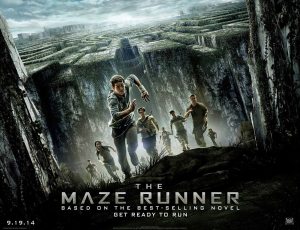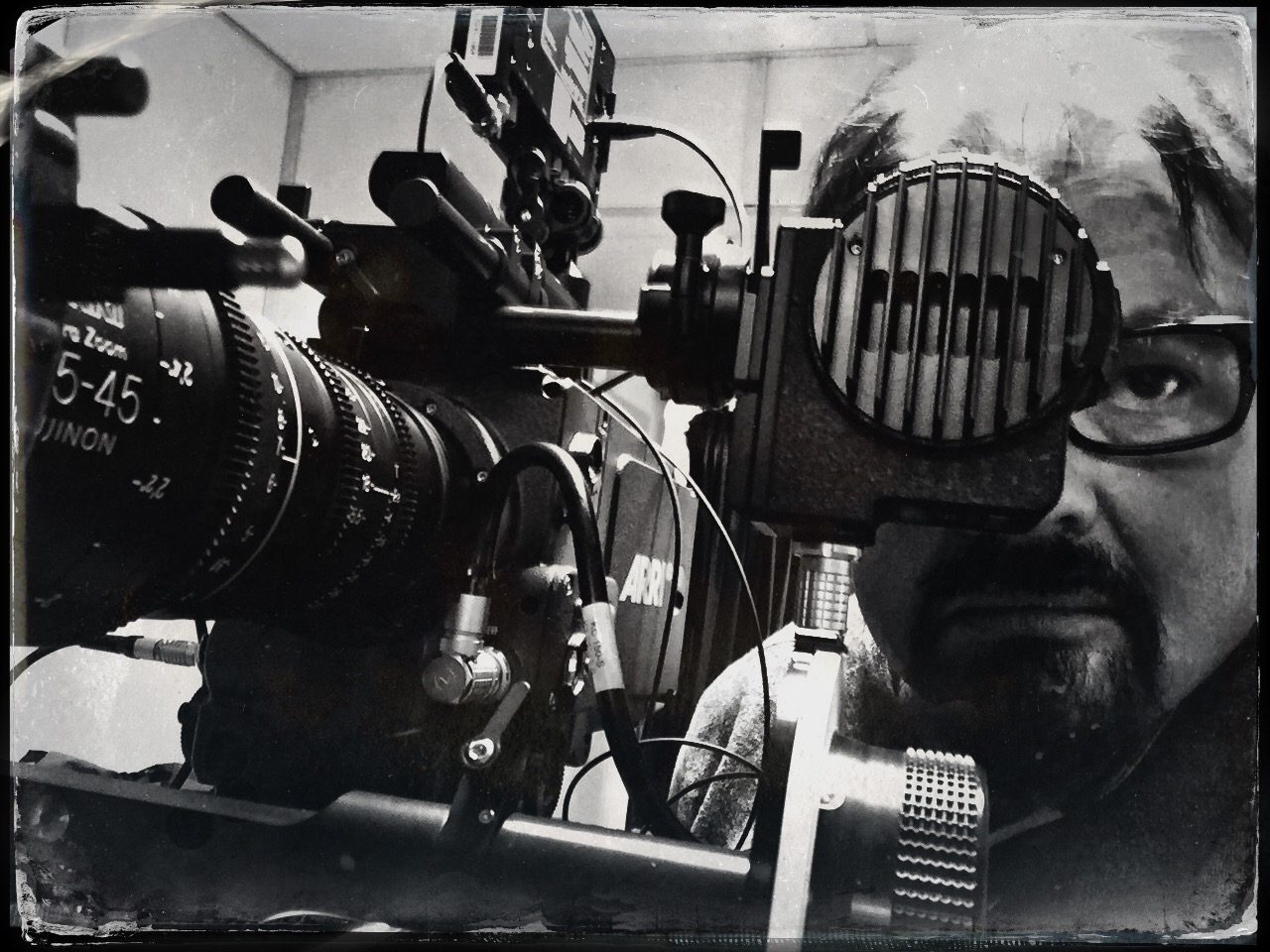Prosthetic memory
 Oblivion (2013) Jack is a clone, number 49, but he does not know this because his memories are not his own. His prosthetic memory is of the Earth’s triumph and the defeat of an Alien invasion. That his role now as a Drone repair technician is helping to protect a desolate Earth from the few remaining Alien survivors. But in truth the opposite is true, the Alien Invasion was victorious, and Jack is unknowingly carrying out the Alien’s Avatar directions, by assisting Sally to strip the Earth of its few remaining resources. In truth, the aliens he is fighting are actually Earth’s real survivors, Scavengers or Scav’s as they are referred to.
Oblivion (2013) Jack is a clone, number 49, but he does not know this because his memories are not his own. His prosthetic memory is of the Earth’s triumph and the defeat of an Alien invasion. That his role now as a Drone repair technician is helping to protect a desolate Earth from the few remaining Alien survivors. But in truth the opposite is true, the Alien Invasion was victorious, and Jack is unknowingly carrying out the Alien’s Avatar directions, by assisting Sally to strip the Earth of its few remaining resources. In truth, the aliens he is fighting are actually Earth’s real survivors, Scavengers or Scav’s as they are referred to.
 As events unfold, he begins to break through the artificial and false prosthetic memories and begin to remember the reality of what happened, eventually overriding the prosthetic memories in the process. One of the key events in understanding his true situation and identity is the chance meeting of his clone, duplicating his role in a different zone. As in the film Ghost in the Shell, the false memories begin to break down. Jack is a clone, yet he appears to retain the memories of the original Jack, hidden behind the false prosthetic memories imprinted on his brain by Sally. As Lury argues in a culture created through the use of prosthetic memory that this culture that is a [p]rosthetic culture thus provides a novel context for understandings of the person and of self-identity”. (Lury, 2013: 11). What I would argue and as Lury appears to suggest in her argument, is that Jack’s identity up to this point does not include the possibility that he is a clone, that he is uniquely Jack, not a clone and his prosthetic memories are real and inform his identity and purpose, which only changes as Jack learns his true identity.
As events unfold, he begins to break through the artificial and false prosthetic memories and begin to remember the reality of what happened, eventually overriding the prosthetic memories in the process. One of the key events in understanding his true situation and identity is the chance meeting of his clone, duplicating his role in a different zone. As in the film Ghost in the Shell, the false memories begin to break down. Jack is a clone, yet he appears to retain the memories of the original Jack, hidden behind the false prosthetic memories imprinted on his brain by Sally. As Lury argues in a culture created through the use of prosthetic memory that this culture that is a [p]rosthetic culture thus provides a novel context for understandings of the person and of self-identity”. (Lury, 2013: 11). What I would argue and as Lury appears to suggest in her argument, is that Jack’s identity up to this point does not include the possibility that he is a clone, that he is uniquely Jack, not a clone and his prosthetic memories are real and inform his identity and purpose, which only changes as Jack learns his true identity.
 The Maze Runner (2014) The film opens with the main protagonist transferring to the surface from a subterranean location. The main protagonist, Thomas arrives with no memory except in a few days he remembers his name. His memory has been wiped selectively, his name the only memory and identity that he knows, just like all the others. They do not know where they are in the world or the reason for their incarceration in the Glade. They are determined to escape and so each day a team (runners) explores the maze outside of the Glade, the aim to identify a route out of the false habitat The Glade and escape back to the real world.
The Maze Runner (2014) The film opens with the main protagonist transferring to the surface from a subterranean location. The main protagonist, Thomas arrives with no memory except in a few days he remembers his name. His memory has been wiped selectively, his name the only memory and identity that he knows, just like all the others. They do not know where they are in the world or the reason for their incarceration in the Glade. They are determined to escape and so each day a team (runners) explores the maze outside of the Glade, the aim to identify a route out of the false habitat The Glade and escape back to the real world.
 Eventually, they escape only to find themselves in a laboratory, everyone appears to be dead, and the laboratory shows damage from a battle between the scientists and an unknown armed group. It is at this point a video starts to play. In the video the scientist reveals that they have been the subjects of an experiment, the world is a ruin destroyed by Sun flares and an unknown plague called the Flare, as the video plays an armed battle is revealed in the background. As the battle reaches a climax the scientist commits suicide in front of the camera rather than be captured. But the video is a lie its intention to create false memories, prosthetic memories in the group of survivors. As the survivors are seemingly rescued from the laboratory the next scene reveals the scientist who killed herself in the video alive and explaining to the other scientists to prepare for stage 2 of the experiment. The staging set in the laboratory and false memories of past events are essential in preparing the survivors for the next stage of the experiment. The video manipulating the memories of the survivors who because of their memory wipes cannot make any comparison between what they know and what they have been told
Eventually, they escape only to find themselves in a laboratory, everyone appears to be dead, and the laboratory shows damage from a battle between the scientists and an unknown armed group. It is at this point a video starts to play. In the video the scientist reveals that they have been the subjects of an experiment, the world is a ruin destroyed by Sun flares and an unknown plague called the Flare, as the video plays an armed battle is revealed in the background. As the battle reaches a climax the scientist commits suicide in front of the camera rather than be captured. But the video is a lie its intention to create false memories, prosthetic memories in the group of survivors. As the survivors are seemingly rescued from the laboratory the next scene reveals the scientist who killed herself in the video alive and explaining to the other scientists to prepare for stage 2 of the experiment. The staging set in the laboratory and false memories of past events are essential in preparing the survivors for the next stage of the experiment. The video manipulating the memories of the survivors who because of their memory wipes cannot make any comparison between what they know and what they have been told
Bibliography
Anon (2017) Ghost in the Shell (2017) – Quotes – IMDb. Available at: https://www.imdb.com/title/tt1219827/quotes?ref_=tttrv_sa_3 (Accessed: 21 January 2020).
Bordwell, D., Thompson, K. and Smith, J. (2016) Film Art: Creativity, Technology, and Business, Film Art: An Introduction.
Grainge, P. (2018) Memory and popular film, Memory and popular film. doi: 10.1111/j.1537-4726.2004.141_16.x.
Hayward, S. (2018) Cinema Studies The Key Concepts. Fitth, Book. Fitth.
Kilbourn, R. (2019) ‘RE-WRITING ” REALITY “: READING ” THE MATRIX ” Author ( s ): RUSSELL J . A . KILBOURN Source : Revue Canadienne d ’ Études cinématographiques / Canadian Journal of Film Studies , Published by : University of Toronto Press Stable URL : https://www.jstor.or’, 9(2), pp. 43–54.
Landsberg, A. (2004) Prosthetic Memory : The Transformation of American Remembrance in the Age of Mass Culture. New York: Columbia University Press. Available at: http://search.ebscohost.com/login.aspx?direct=true&db=nlebk&AN=107227&site=ehost-live&authtype=ip,shib&user=s1523151.
Landsberg, A. (2009) ‘Memory, empathy, and the politics of identification’, International Journal of Politics, Culture and Society, 22(2), pp. 221–229. doi: 10.1007/s10767-009-9056-x.
Landsberg, A. (2016) ‘Prosthetic Memory: Total Recall and Blade Runner’, Body & society. SAGE Publications, 1(3–4), pp. 175–189. doi: 10.1177/1357034×95001003010.
Lury, C. (2013) Prosthetic Culture, Prosthetic Culture. doi: 10.4324/9780203425251.
Opam, K. (2017) Ghost in the Shell review: a solid film built on a broken foundation – The Verge. Available at: https://www.theverge.com/2017/3/29/15114902/ghost-in-the-shell-review-scarlett-johansson (Accessed: 21 January 2020).
Radstone, S. and Hodgkin, K. (2003) Regimes of memory, Regimes of Memory. doi: 10.4324/9780203391532.
Radstone, S. and Schwarz, B. (2016) ‘Chapter Title : Introduction : Mapping Memory Chapter Author ( s ): Susannah Radstone and Bill Schwarz Book Title : Memory Book Subtitle : Histories , Theories , Debates’, pp. 0–10.
replicant, n. : Oxford English Dictionary (no date). Available at: https://www.oed.com/view/Entry/162877?redirectedFrom=replicant#eid (Accessed: 22 April 2020).
Sloat, S. (2017) False Memories in ‘Blade Runner’ Could’ve Been Solved with Science. Available at: https://www.inverse.com/article/37496-blade-runner-2049-false-memories-ryan-gosling (Accessed: 16 March 2020).
Spies Like Us: Harry Palmer, the Everyday Hero of ‘The Ipcress File’ • Cinephilia & Beyond (no date). Available at: https://cinephiliabeyond.org/spies-like-us-harry-palmer-everyday-hero-ipcress-file/ (Accessed: 1 February 2021).
Warner Brothers (2017) Blade Runner 2049 (2017) – IMDb. Available at: https://www.imdb.com/title/tt1856101/?ref_=nv_sr_srsg_0 (Accessed: 5 May 2020).


